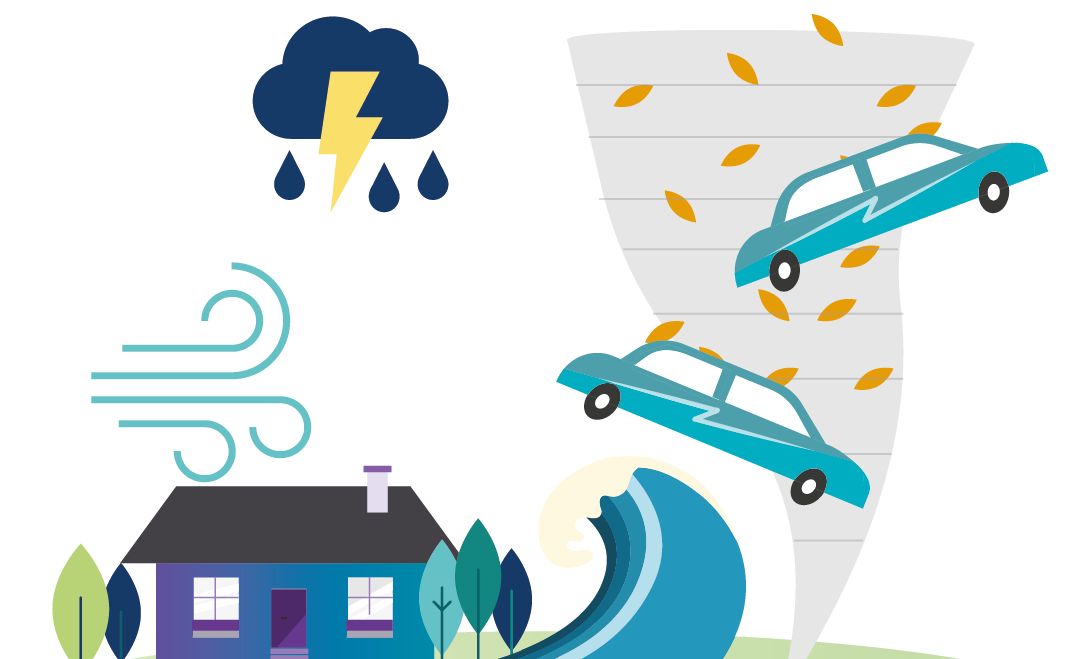
The most recent study conducted by the Polish Chamber of Insurance* shows that almost 80% of residents of areas particularly exposed to natural forces believe that their dwellings are safe. PIU starts the #niezaklinaj (#dontplead) campaign.
- More than half of the respondents believe that climate changes are causing more and more damage around the world, but not where they live.
- One-third of the respondents believe that insurance against natural disasters is unnecessary due to a low level of risk.
- The studies were conducted only in areas with a particularly high exposure to natural disasters or in regions where a natural force would result in high social or economic costs.
As many as 66% of the respondents think that the probability of flooding in their local area in the next 12 months is low or very low. However, the vast majority of the respondents live in the south of Poland, a region particularly vulnerable to flooding. The respondents’ declarations have an impact on their attitude to insurance. More than 30% of those with household insurance declare that they do not purchase policies covering strong winds. A total of 27% have no protection against voltage surges, which can cause damage to household appliances, radio and TV equipment. One in four respondents decides against flood insurance.
No savings for disasters
As many as 80% of the respondents would not be able to use their own funds to rebuild their damaged property or buy a new one of a similar standard. The situation is the same when it comes to renting new accommodation – for more than 60% of the respondents it would be financially impossible. What is more, a similar number of respondents declare they have no savings they could use if damage is caused by weather events. Therefore, it may seem that most of the respondents would claim household insurance to be the best protection against the effects of natural forces.
Help from the family or the state
However, for damage caused by natural forces, most respondents count on assistance from the local government or the state (54% and 50%, respectively). A total of 52% declare that they would seek help from their family or friends, and almost 50% would immediately notify their insurance company. ‘Despite the growing frequency and severity of weather events, we still take natural forces with a pinch of salt. We are under the impression that damage caused by the elements is more likely to happen to everyone else, but not to us. It is our duty to educate people on insurance; this is why we have launched the #niezaklinaj campaign’, says Rafał Mańkowski, PIU expert analyst. As part of the #niezaklinaj campaign, PIU has conducted studies on awareness about weather risks and insurance. New content has been published on social media and on PIU blogs. In addition, PIU has distributed materials with guidelines on proper protection against severe weather across more than 2400 districts.
Guidance material on the PIU website
Information about the #niezaklinaj (#dontplead) campaign
How can we protect ourselves?
We are unable to avoid natural disasters, but we can mitigate their consequences. Preventive measures, such as spatial planning, or the absence of investment on floodplains, are crucial. Over recent years, the frequency of severe weather events, such as violent storms, heavy rainfall, hailstorms and gales, has increased in Poland. When buying insurance for a house or a flat, we should remember a few simple rules:
- The sum insured should reflect the value of the property we want to protect.
- We should protect not only the walls, but also the items within our property, such as household appliances, radio/TV equipment and furniture.
- The insurance cover should be extensive and include damage caused by rain, flooding, hailstone, gales, fire or lightning.
- We should determine the method of valuation of property in the event of any future damage.
*A study commissioned by the PIU, conducted in July 2019 by SW Research with the use of the CAWI+CATI method on a sample of 2,193 respondents. The respondents were from the provinces of Dolnośląskie, Małopolskie and Podkarpackie, and from the districts of Grudziądz, Inowrocław and Wrocław. According to the PIU report ‘Climate of risk’, these regions are particularly exposed to weather events or are places where extreme weather events could result in significant social and economic costs. Due to the different nature of weather risks, the study did not cover the largest cities of the regions in question, i.e. Wrocław, Rzeszów and Kraków.
